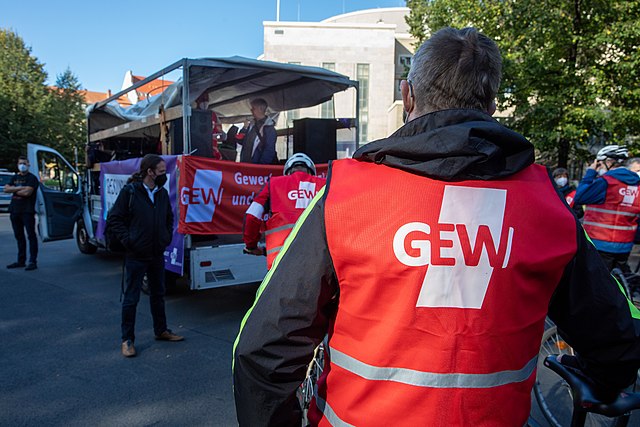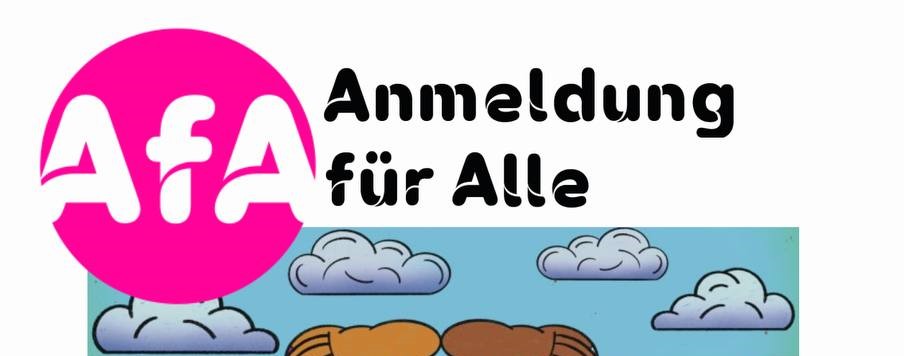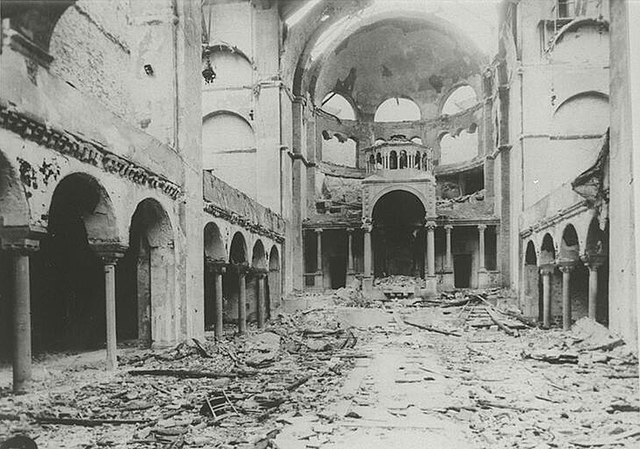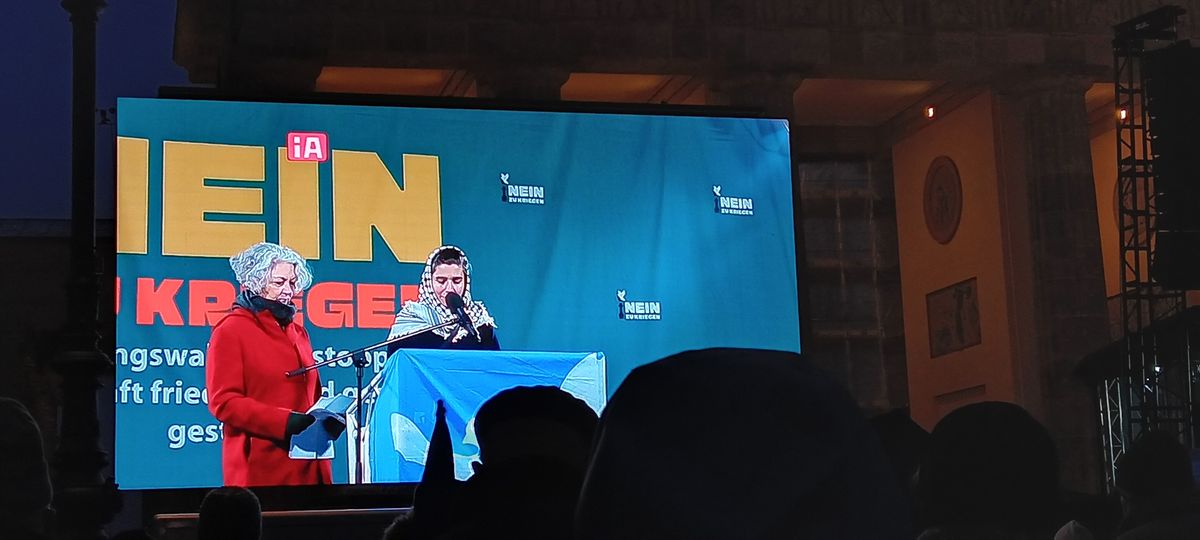Shoes on the Danube Bank is a sculpture of 60 shoes made of iron, glued to the bank of the Danube River to commemorate the Jews of Budapest who were murdered during World War II. Walking by this memorial in the Hungarian capital, the absent bodies haunt you. Standing on the river’s bank among shadows of death, you cannot but visualize and live this scene when Jewish people were asked to take off their shoes before they were shot dead and fell into the cold waters. Sandals, boots, all different styles of shoes and sizes are a reminder that nobody was spared the brutality of the government’s Arrow Cross militias. It is also a stirring reflection of barbarity, and how humanity can be so animalistic. In the evening, the shoes disappear, drowned out by the brighter lights from the national parliament building across the river. A few passers-by commemorate the dead. They deconstruct the significance of the shoes by filling them with roses, turning shoes into flower vases.
On October 8, 2023, I visited the largest Jewish museum in Europe, the Jewish Museum Berlin. Across the street, you can see the W. Michael Blumenthal Academy. The Jewish Museum Berlin exhibits Jewish history from the Middle Ages to the present day through library collections, archives and drawings, among other documentation. Plenty of pictures of the mighty founder of the Zionist movement, Theodor Herzl, punctuate the halls of the museum. He stares at me. I am irritated. I am pleased, however, that entry to the museum is free. It is highly priced and paid for by German responsibility. German-Jewish history takes up – quite rightly – large parts of the site, composed of three buildings, covering some 3,500 square meters not far from Checkpoint Charlie. Inside the museum, one particular installation stands out.
In the installation, 10,000 faces made of steel are piled in a broad corridor. All the faces show, right below the nose, a carved-out and circular, open mouth to signify the faces’ cries and discomfort. Israeli artist Menashe Kadishman called the installation Shalekhet, which means “fallen leaves.” The installation is the only “empty” space in this part of the museum where visitors can enter and walk through. It is an interactive space where you are allowed to tread on the faces of victims of war, listening to the metal pieces as they clink and rattle against one another. The resounding echoes within these lofty grey walls are terrifying. This scene as well, again, is haunting.
In 2010, I visited the Tate Modern art gallery in London, where I saw an art installation called Kui Hua Zi or Sunflower Seeds by contemporary artist and political activist Ai Weiwei. The work consisted of 100,000,000 individually hand-crafted porcelain sunflower seeds, which filled the gallery’s 1,000 square-meter hall. The art installation weighs 150 tons, was hand-painted and fired at 1,300 degrees Centigrade, and required more than 1,600 workers to complete it over the span of two and a half years in China before it was exhibited in London. Visitors were initially allowed to interact, walk across, lay down and play with the sunflower seeds before the museum feared that dust from the installation could be harmful; they decided to fence off the exhibit afterward. I was one of the lucky ones who visited early and thus I took part. I was tempted to sneak one seed into my pocket, but I felt guilty so I put it back. Sunflower Seeds represents and symbolizes the vastness of China. On the one hand, an individual seed is instantly lost among millions, symbolizing the conformity and censorship of the Chinese Communist Party. On the other hand, the combination of all the seeds represents the unity of the people to stand up and overthrow any political party.
In 2011, Ai Weiwei was sentenced to 13 years in prison for subversion of state power, but was released 81 days later and handed a $2.4 million fine for tax evasion. His passport was confiscated, and he was placed under house arrest for four years. When his passport was returned to him, he left for Germany where he was offered a professorship at Berlin University of the Arts. In an interview published in The Guardian in 2020, Ai Weiwei explains why he quit Germany for Britain, calling the country “intolerant,” as well as “bigoted and authoritarian.” Ai Weiwei in the interview compares Germany to Britain, another colonial power. “In Britain,” he says, “they are colonial. They are polite at least. But in Germany, they don’t have this politeness. They would say in Germany you have to speak German. They have been very rude in daily situations.” He mentions he was thrown out of taxis on three different occasions in Berlin. “They deeply don’t like foreigners,” he adds. Ai Weiwei here is like a Nazi German officer: he does not spare anyone any harsh criticism. He mentions demonstrations in 2018 in which thousands of right-wing extremists on the streets of Chemnitz, a town in eastern Germany, were shouting “Foreigners Out.” “Ai believes,” writes The Guardian, “the country [Germany] has become indifferent to the suffering of others, both within Germany and outside.”
Fast-forward: it is November 16, 2023, and Ai Weiwei’s new exhibition in London is cancelled based on allegedly “antisemitic tweets” in which he defended Palestinians and their right of self-determination. Other exhibitions in New York, Berlin and Paris have also been cancelled. Ai moves to Lisbon, where he has started building a copy of his demolished studio in China. “Planning permission wasn’t easy,” he tells his interviewer. With a conspiratorial smile, he explains: “When they asked me what I was going to put in it, I said sunflower seeds.” Ai Weiwei visited Gaza in 2016 where he filmed parts of Human Flow, a German documentary he directed and co-produced on the impact of human migration and internal displacement. Israeli authorities had initially refused to let him in, claiming that the Gaza visit could pose a threat to his life.
II
On October 7, 2023, I went to have dinner on Sonnenallee in Neukölln. On the street, German police were asking people for identification, clearing out crowds of Palestinians and making sure people were not handing out stickers of Palestinian flags or chanting the words, “Free Palestine.” This reminded me of a scene from the infamous German movie of 1999, Sonnenallee, where a border checkpoint was still in operation for a few months and at which East Berliners still had to show their identity documents, to be stamped by the German Democratic Republic border authorities. A few Palestinian youngsters were celebrating at Hermannplatz earlier in the day, handing out baklava and other sweets in the middle of Berlin. This was their way of celebrating the revival of Palestinian resistance which has been diminished for many years in Palestine, because of the complicity of the Palestinian Authority with Israel, as well as outside Palestine, due to the oblivious international community and its absent application of regulations, humanitarian laws and protocols as set by the Geneva Conventions.
Lest we forget, these youngsters are exiled children and grandchildren who are the direct descendants of the 1948 Palestinian Nakba/Catastrophe and the 1967 Arab-Israeli War. They will cheer for any reason that provides them with hope to return to their homeland and/or feel “at home.” “Home,” writes Nagib Mahfouz, an Egyptian writer and Nobel Prize winner, “is not the place where you are born. It is the place where all your attempts to escape cease.” Perhaps Germany will be such a place, one day. Today, however, this is not only hindered by German policies but also by fellow exiles in Berlin. In a Tagesspiegel article written by a Turk (whose name was anonymised by the editors), Arabs who live and work on Sonnenallee are seen as more “aggressive” and “less cultured than Turkish people.” This is why, claims the article, Arabs are not able to integrate into German society, are always in trouble and live constantly on the margins.
Once you arrive at what is known as the “Street of Arabs” in Berlin, Die Arabische Straße, you are greeted by a street sign hanging on an electric pole: Sonnenallee (Sun Avenue, or Sunny Road, or perhaps Sun Alley). The sign is underlined with a colorful sticker that reads: Free Palestine. You walk these lively streets while ghosts of Palestinian detainees, prisoners and martyrs haunt you, looking at you from every poster tacked up on neighborhood walls. The street is punctuated with sounds of Arabic dialects, the poetic lines of graffiti sprayed left and right and signs in Arabic, German and Turkish, the fragrance of frying oil and tobacco. Here you see and smell and hear Palestinian memorabilia, Syrian desserts and clothing stores, Turkish döner and baklava, Iraqi spices, Lebanese pastries, Kurdish and Egyptian music. It is loud and chaotic on Sonnenallee, compared to other parts of Berlin. Such is life.
Sonnenallee is a space that allows for cultural translation and healthy dialogue. I see German hipsters in this area with their Arab and Turkish friends. It is a refreshing sight. You could not tell that this was a street established in the nineteenth century, called in 1938 Braunauer Straße after the birthplace of Adolf Hitler, and once divided by the Berlin Wall. It was a border crossing between East and West Germany, before reunification and the fall of the Soviet Union. Today, Sonnenallee deconstructs and frees this street from its colonial context, expands its borders culturally, challenges the parameters of its society, and offers spaces for political revision. Integration with German culture and society, however, by Arabs generally and Palestinian youths particularly, will always be problematic. Integration will always be challenged and ultimately result in mere assimilation, if at all, because the 10 percent of inhabitants of Sonnenallee who have an Arab background have seen and witnessed how Germany keeps supporting the killings of their brothers and sisters and the ongoing Israeli settler-colonization in Palestine. On October 12, German Defense Minister Boris Pistorius said that two-armed Heron combat drones, leased by the German military, as well as shipments of German ammunition, have been deployed for use by Israeli forces. Millions of euros were given in November 2023 to further aid the Israeli invasion of Gaza. Over a billion and a half euros are paid in compensation for Holocaust survivors. “There is only one place for Germany,” said German Chancellor Olaf Scholz in a speech to lawmakers, “that place is Israel’s side.” A few days later, Scholz’s face outshined the otherwise dull red cover of German magazine Der Spiegel. The caption: Wir müssen endlich im großen Stil abschieben, “We finally have to deport people on a large scale” (October 20, 2023).
Before the start of Russia’s war with Ukraine in 2022, it had been Germany’s longstanding official policy not to supply arms to conflict zones. Despite Berlin’s commitment to rethinking its security and foreign policy, opposition to German military entanglement in overseas conflicts still runs deep in German society. Palestinian protestors on the streets today affirm their national identity as a defensive mechanism in the face of Western capitalism, colonialism and materialism overseas. They are seen bemoaning racism, dreaming of assimilation, haunted by nostalgic dreams, waiting for a physical return, idealizing a national image, instinctively identifying with and focusing on the natal and inherited as opposed to the forced and required. Despite speaking the German language and receiving generous state funding, Palestinians in Germany always feel pushed to the margins. This feeling varies, of course, from one generation to another. This is however the ambience under the sun of this “multicultural” avenue in Neukölln. It is intensely heated. Physical and financial accommodation will not necessarily house these refugees culturally or mentally, because Germany’s political stance will always jeopardize such dynamics.
Sonnenallee is as German as DHL, and DHL is not authentically German. It is originally an U.S. American company. The letter D in DHL does not stand for Deutschland, either. DHL was founded in 1969 in San Francisco by Adrian Dalsey, Larry Hillblom, and Robert Lynn, the DHL formed from the first letters of the founder’s family names. Most Germans will tell you otherwise, because they do not factually know. Germans say this, however, because they have been told the D stands for Deutschland, and this has been cemented as part of the country’s global reputation and cultural foundation since the German postal services, Deutsche Post AG, was privatized. Some Germans too will employ similar logic to rationalize the statement that Palestinians are terrorists, even though they do not factually know this. It is, however, a perceived fact sponsored by, and shared with, the United States and its complicit mass media.
According to the USDA Foreign Agricultural Service, “German food culture is changing. The number of vegans is growing, and more than half of the population wants to reduce meat consumption, considering themselves flexitarian. This makes Germany one of the most important markets for plant-based food worldwide with good opportunities for U.S. exporters.”
Given this, I expect more sympathy and empathy from Germany towards “human animals” to be saved. It is meant to be ironic – given the ridiculous support Germany provides to Israel and the vegan selections and choice it makes available for its people.
Palestinians have been a main target of racial prejudice in Germany in recent days, burdened by unjust political decisions restricting their mobility and freedom of speech. They have also been subjected to heavy surveillance and police patrols. Sonnenallee was a border crossing for Berliners during the city’s years of division. A monument by artist Heike Ponwitz offers a reminder of state surveillance in the former border area. The piece is called “Crossing Over: Proximity and Distance,” and includes two pairs of telescopes. Looking through them, the word Übergang (Crossing Over) disrupts the view, as it is overlaid across the landscape beyond the lens. Today we are witnessing similar disruptions which silence only Palestinians, and distort the German sociopolitical space.
On October 11, 2023, a protest in support of Palestinian liberation was banned in Berlin. This was followed by a ban on displaying the Palestinian flag and the verbalization of the words “Free Palestine” in public spaces. Dozens of peaceful protestors who arrived despite the ban were kettled by police and lined up for criminal processing, with mugshots taken in public on Hermannplatz, in the neighborhood of Neukölln. The following day, an anti-colonial protest to mark Indigenous Peoples’ Day that took place outside the German Foreign Office in Berlin welcomed the presence of Palestinian voices, alongside those from Guatemala and Aotearoa. The rally was interrupted with violence multiple times by the Berlin police. Police intimidated and arrested anyone who said out loud, “Free Palestine,” during the peaceful gathering. On October 15, a pro-Palestinian rally was authorized at Potsdamer Platz, only to be subsequently banned minutes before it began, with police intimidating and aggressively handling participants before arrests. On October 16, Berlin’s department of education granted school administrations the authority to police students and ban Palestinian symbols such as Palestinian flags and Palestinian scarves, called kuffiyeh. Throughout this period, police in Berlin have been actively patrolling, intimidating and arresting Arabic speakers in Neukölln around Sonnenallee, a predominantly migrant neighborhood in a city that is home to one of the biggest Palestinian communities in Europe.
I have read testimonies and have watched videos that have documented multiple instances of intimidation, targeted insults and threats of dismissal for anyone who expresses their support for the Palestinian people. The Mainz German Football Club, for example, has dismissed and terminated the contract of a Arab Moroccan player, Anwar El Ghazi, for posting on Instagram calling for an end to the genocide in Gaza.
The selective criminalization of Palestinians, Palestinian voices and Palestinian national symbols is not humane. This selective proscription of people who support the Palestinian cause and who practice their right to peacefully exercise anti-colonial resistance is not fair. The internationally complicit silence over Palestinian suppression is unacceptable. The Palestinian flag, the Palestinian kuffiyeh and the words, “Free Palestine,” are all constituent elements of a cultural identity and a nonviolent means of resistance, to colonialism and ethnic cleansing.
III
I have written essays about literary holocausts and about the dangers of censorship. I also have written about the failure of multiculturalism in Europe, the politics of identity, the myth of the “clash of civilizations,” the dangers of nationalism, xenophobia and racism, and the poetics and problematics of immigration and displacement. I have discussed Berlin’s troublesome locus in challenging the arts-funding status quo, to maintain its status as Europe’s self-proclaimed “art capital.” All these issues came together when The Arab Publishers’ Association in Egypt and The Sharjah Book Affair in the United Arab Emirates decided to withdraw their participation from the Frankfurt Book Fair in Germany – a fair which aims to highlight the role of culture and books in encouraging dialogue and understanding between peoples. This was in in response to a statement by the director of the Frankfurt Book Fair in October in support of Israel, and the decision by the fair’s management to withdraw an award for Palestinian author Adania Shibli for her novel, Minor Detail, which was longlisted for the International Booker Prize in 2021. The novel depicts the life of a Palestinian woman who was raped by Israeli soldiers in 1949, and addresses the violence, memory and suffering of Palestinians. German broadcaster Deutsche Welle reported that the award organizers cancelled the event at the last minute.
Slovenian philosopher Slavoj Zizek raised pivotal questions and points during a speech at the book fair, as well as in interviews afterward. He highlights an idea I have always shared: that the Jewish diaspora has significantly contributed to the establishment of our civilization and of cultural modernity. This diaspora has also contributed to many intellectual and spiritual achievements which simply could not have happened in a narrow, tribal society like that of ancient Judaea. Examples of individuals from this fruitful Jewish diaspora can be found in Sigmund Freud, Franz Kafka, Albert Einstein and Pablo Picasso, among many other names. You can also find caricatures and gigantic stickers of these figures and more all over the walls of the Jewish Museum in Berlin. Zizek in his comments stresses that Zionist Israelis are using the Holocaust to justify their actions today. He makes sure to clarify, however, that the criticism of Israeli politics is not antisemitic. I wonder: how can quoting Israeli and Jewish writers and artists who are against Zionist ideals, such as political scientist Ilan Pappé and physician and author Gabor Maté, for example, be antisemitic?
Antisemitism is becoming the new Nazism. Antisemitism is a European problem, generated over thousands of years of White Christians marginalizing and murdering Jewish people until these communities were pushed toward the Middle East. Explanations of the sociopolitical and historical conditions which led to the horrors of October 7, 2023, as well as in November 1947 are not antisemitic, because the contextualizing of an event does not mean the justification of an event. Such problems did not start on October 7. They started in 1896, with the establishment of the Zionist movement and the subsequent Palestinian Nakba/Catastrophe in May 1948.
This is not a war or conflict between Hamas and Israel, it is between Israel and Palestine. This conflict is not between Jews and Arabs, but between the United States and its interests in the Middle East. Hamas is not a terrorist group. It is a resisting group. I condemn Hamas but I also understand why it has become the world’s enemy; simply because people have been blocked from hearing their story. I am not a big fan of Hamas, nor of religion for that matter. Hamas, however, is only 36 years old and did recognize Israel as a state. Israel did not reciprocate. Instead, it has kept 2.3 million people locked up in a 360 kilometers strip of land for 15 years. Imagine being locked up in your house for 15 years. Society could not handle quarantine during Covid for two weeks. In fact, Israel admitted funding Hamas in the past to widen the gap between Hamas in Gaza and Fatah in the West Bank, so that Israel maintains control over both.
Zizek invokes an important saying: “An enemy,” he says, “is someone whose story you have not heard.” He stresses in his speech at the Frankfurt Book Fair that society must provide a narrative with equal representation for both sides. He invites the audience to mention the word “Palestine” in their description of the war between “Israel and Hamas,” because there are always two sides to any story. He highlights the importance of recognizing the massive despair that could give birth to such evil acts. Zizek was mostly booed off the stage in Frankfurt, while a few hands were clapping. In an interview on November 2 after the fair, Zizek said he sees in Germany a state that tries to compensate and pay for what it did to the Jewish people during World War II by supporting the state of Israel’s murderous deeds at the expense of Palestinian lives. He offered a hypothetical suggestion: If Germany has a historic responsibility to protect the Jewish homeland in atonement for its Nazism, and if Germany feels so guilty about killing six million Jewish people, why didn’t Germany grant the Jewish people a state in Hamburg, for example?
“Why was a Jewish state established in Palestine?”I have heard an answer to this question before. It would be: because it has been written in the Torah. Whether a book written thousands of years ago can be considered a legitimate justification for war and displacement, I will not address here. However, and by the same token, does not the Torah also say: “Whoso sheddeth man’s blood, by man shall his blood be shed: for in the image of God made he man”? Israel’s Channel 14 keeps an updated count on its official website (accessed at 21:07 on November 16, 2023) of the number of “eliminated terrorists,” attacks in Gaza, wounded Palestinians and buildings bombed. Here are the numbers: 12,320 eliminated terrorists, 16,188 attacks in Gaza, 29,200 wounded Palestinians, and 32,376 buildings bombed. This is not godly, nor is it humane.
Germany should allow peaceful protests in support of Palestinian freedom as well as legalize expressions of solidarity in the use of Palestinian symbols and slogans. The government should end the policing of students and hold police authorities accountable for violence and the application of discriminatory policies. Germany has both a moral and political obligation to call for a ceasefire in Gaza, and to stop arming and supporting the state of Israel in its war against the Palestinians, inside as well as outside of Germany. It should abide by its democratic laws and ensure that history indeed does not repeat itself, because no one wants another Auschwitz in Gaza – or elsewhere.



